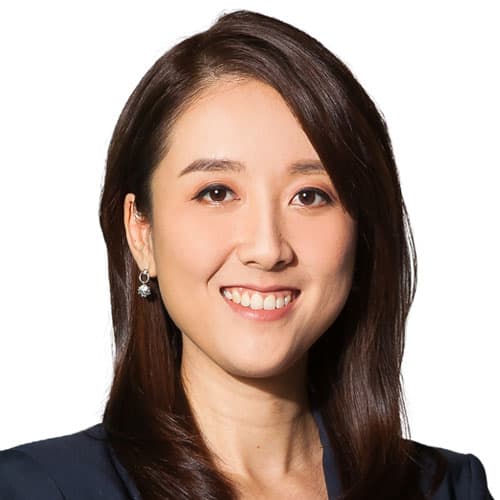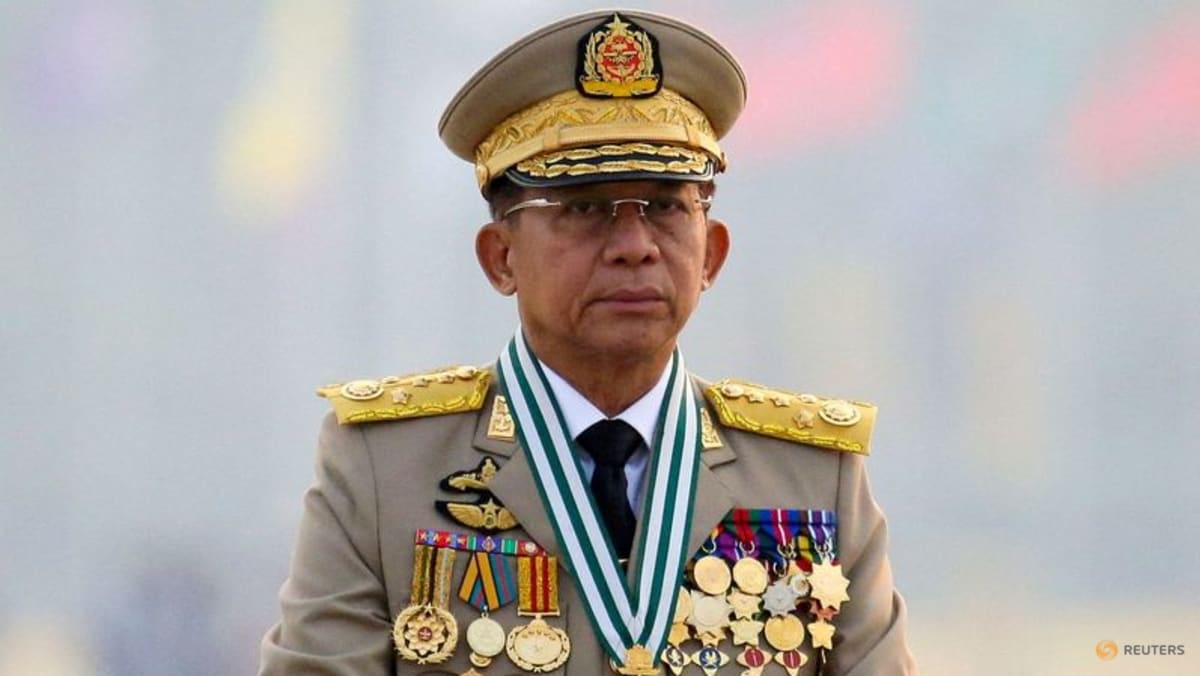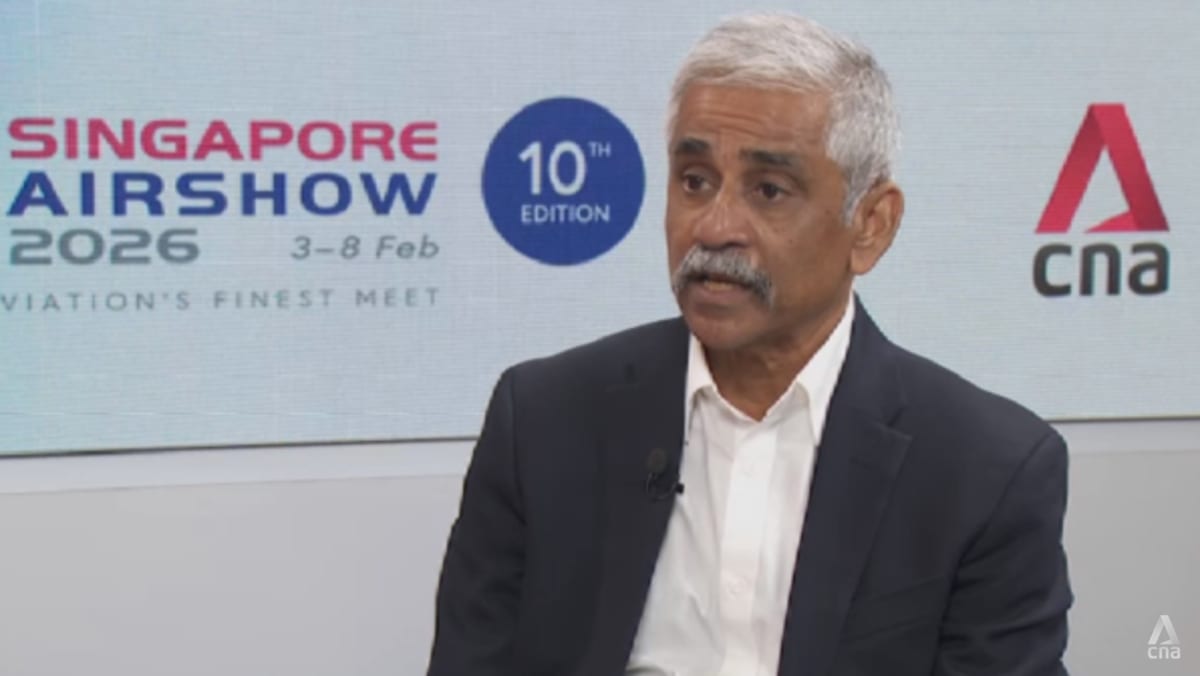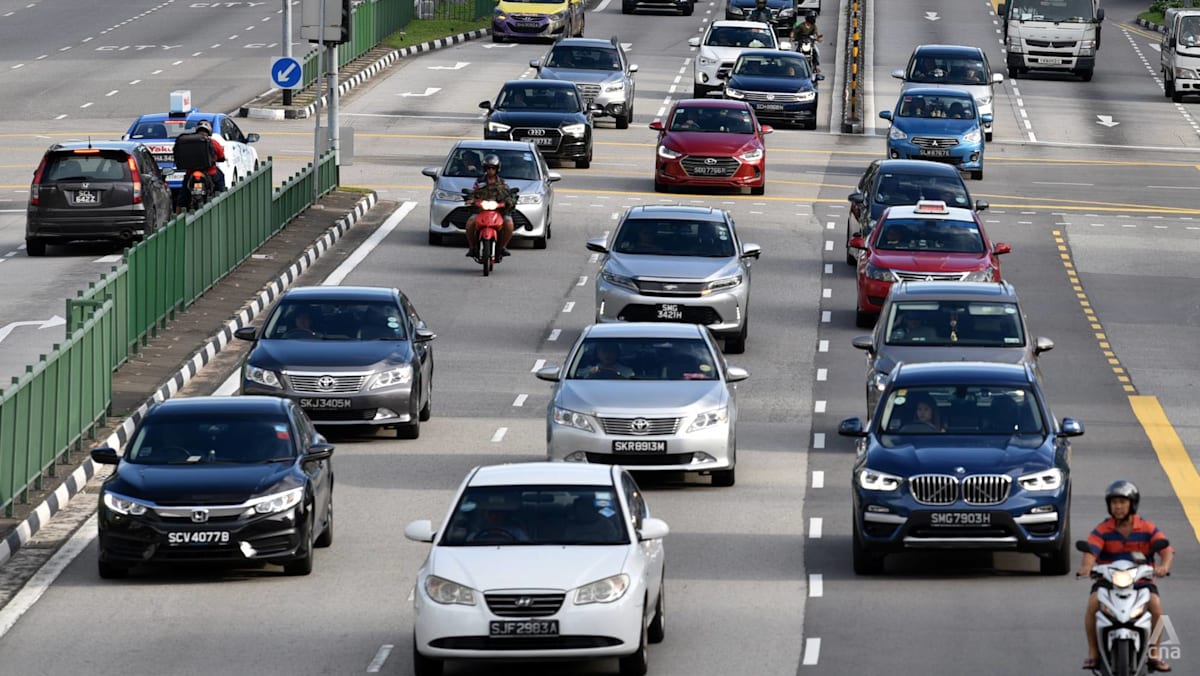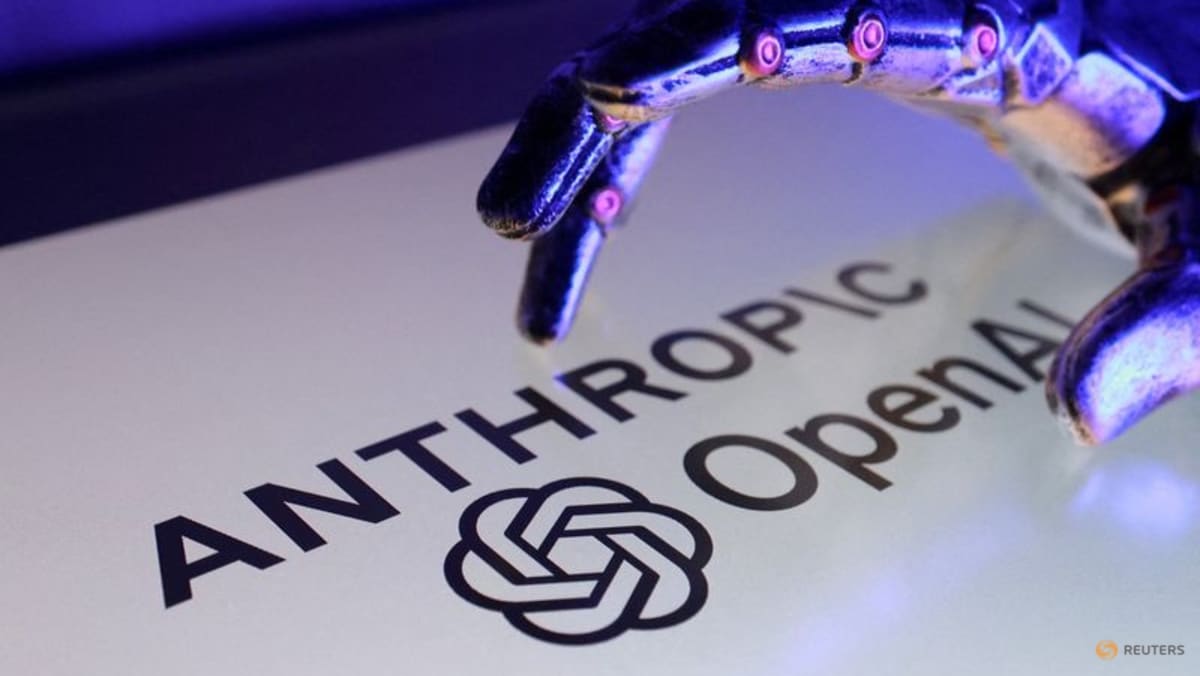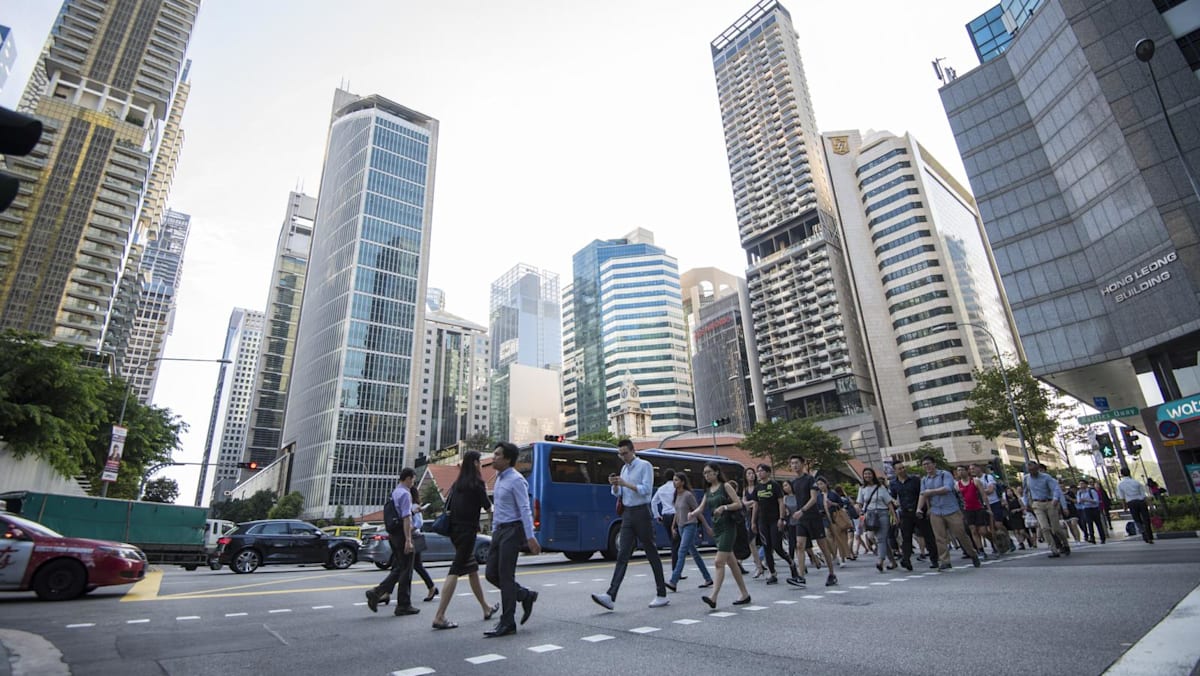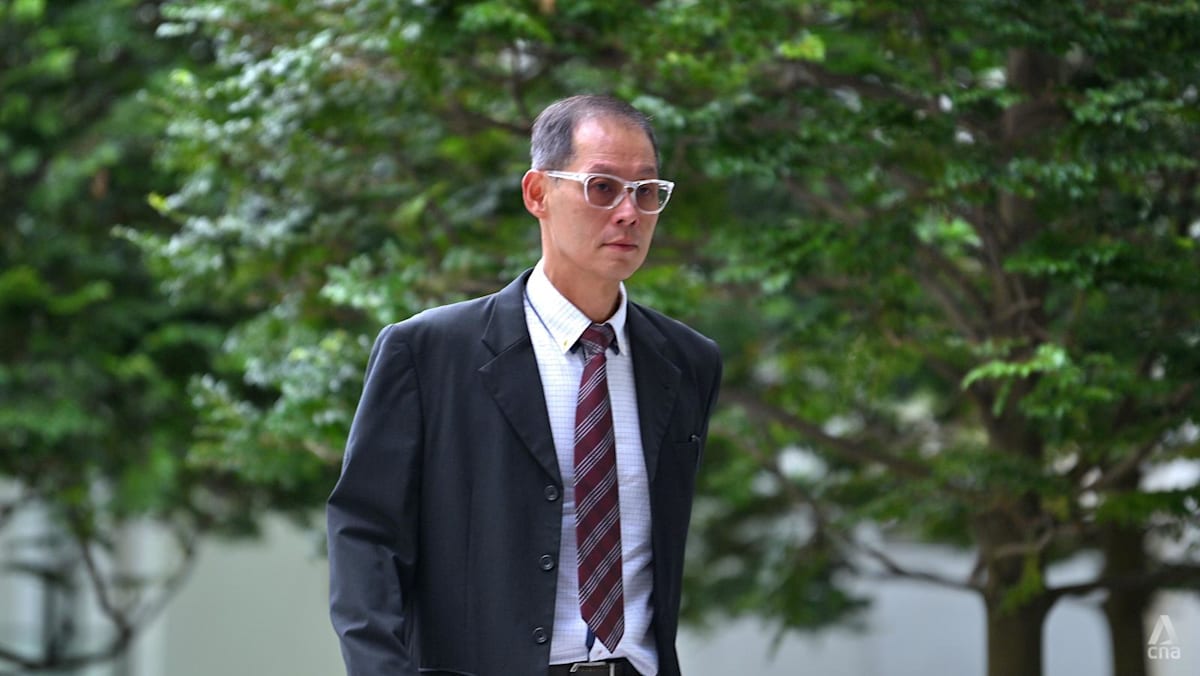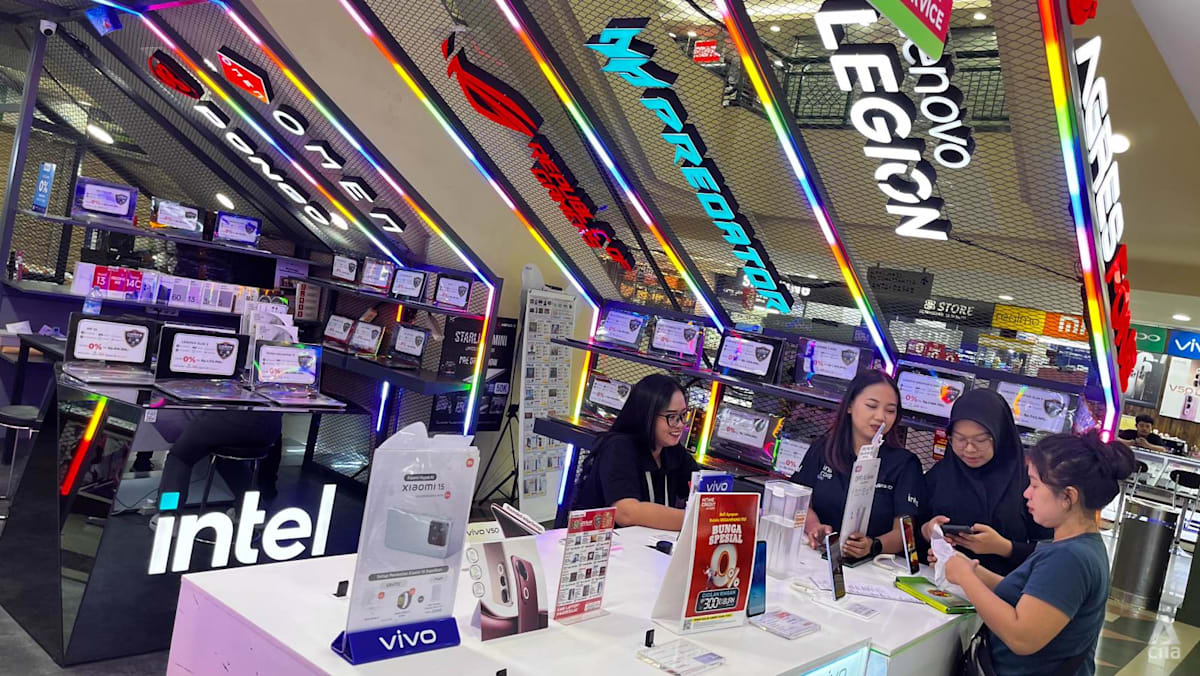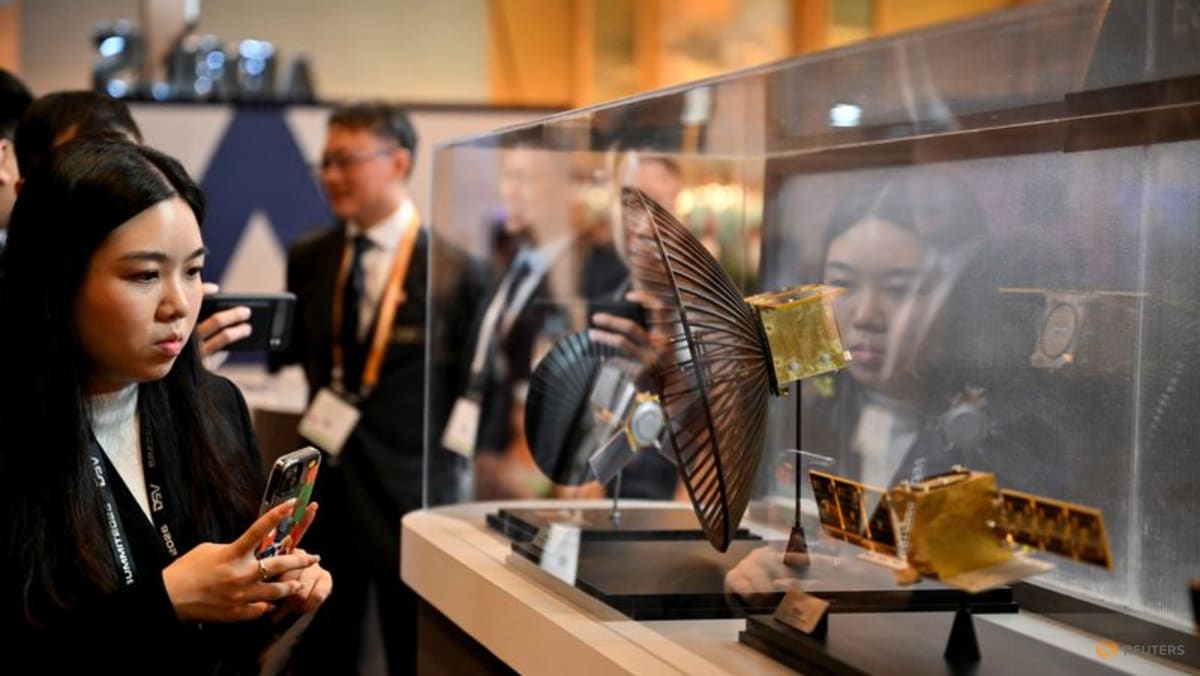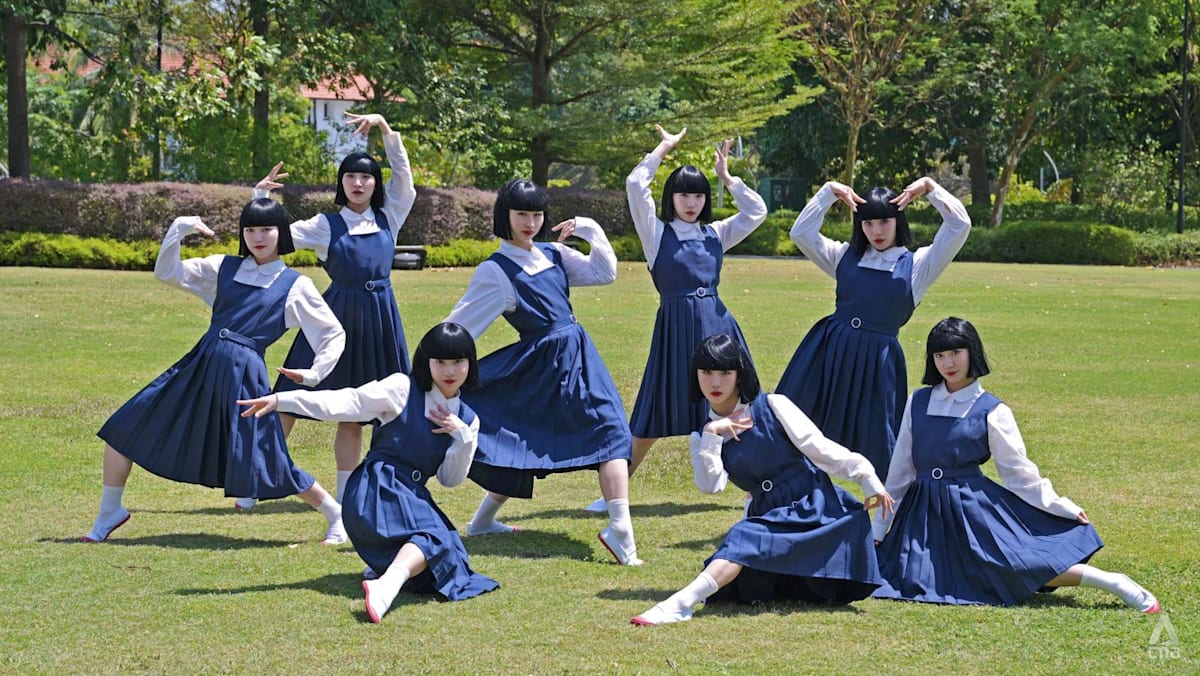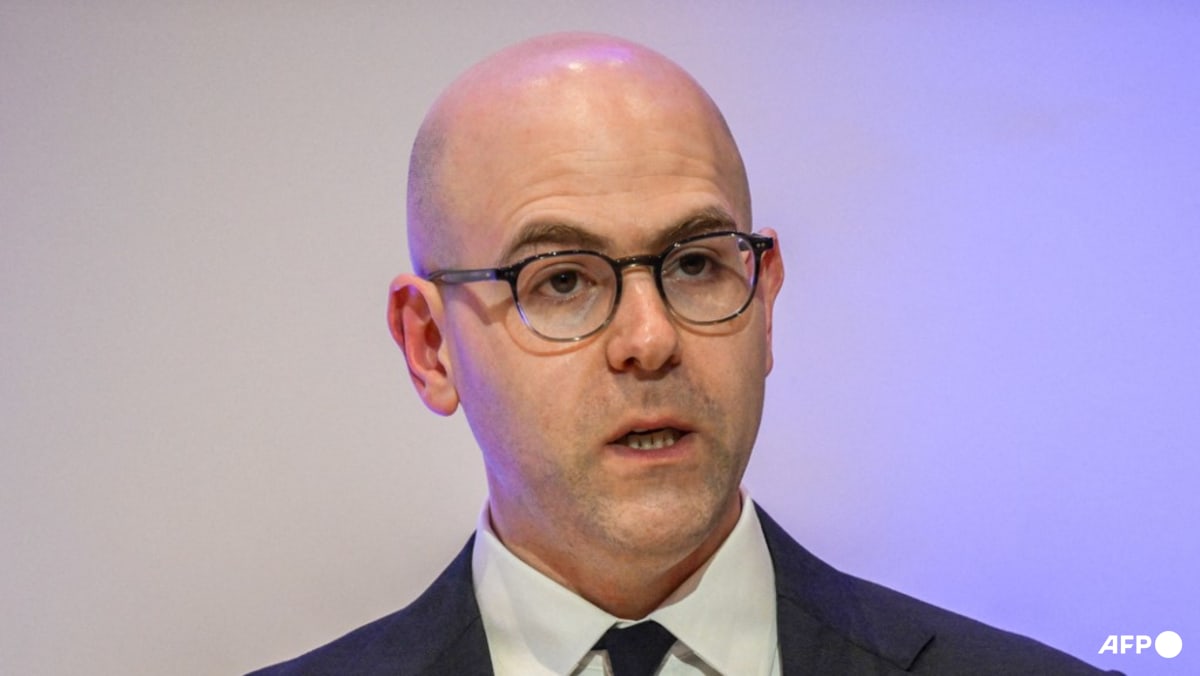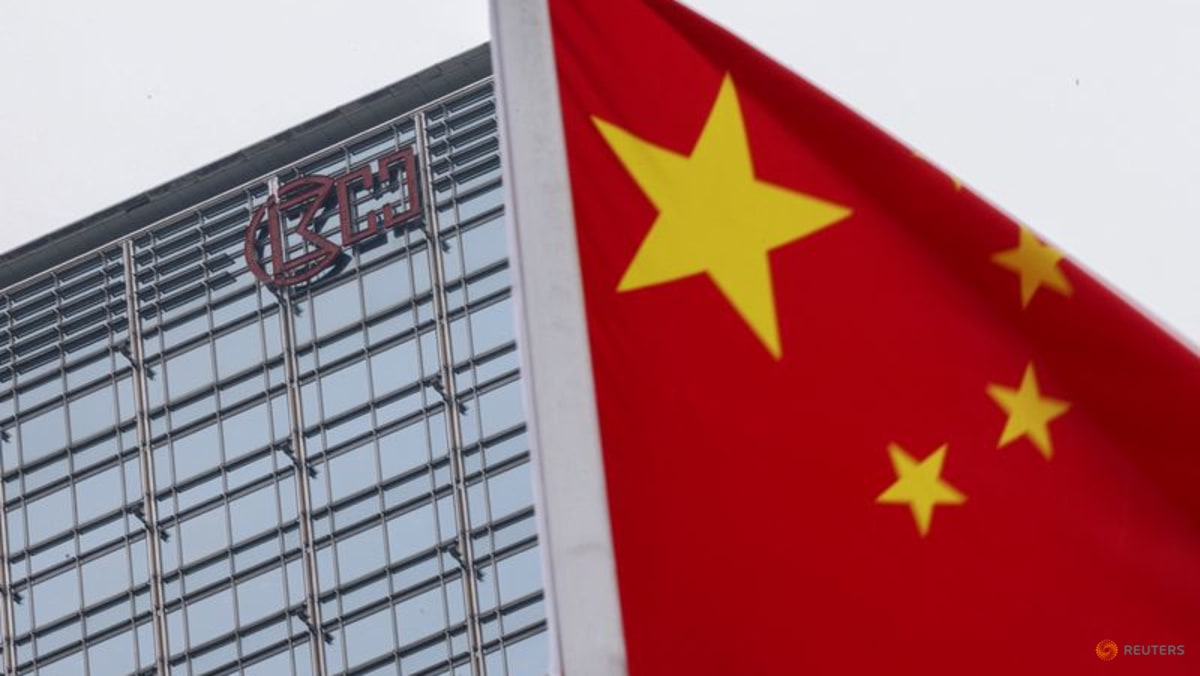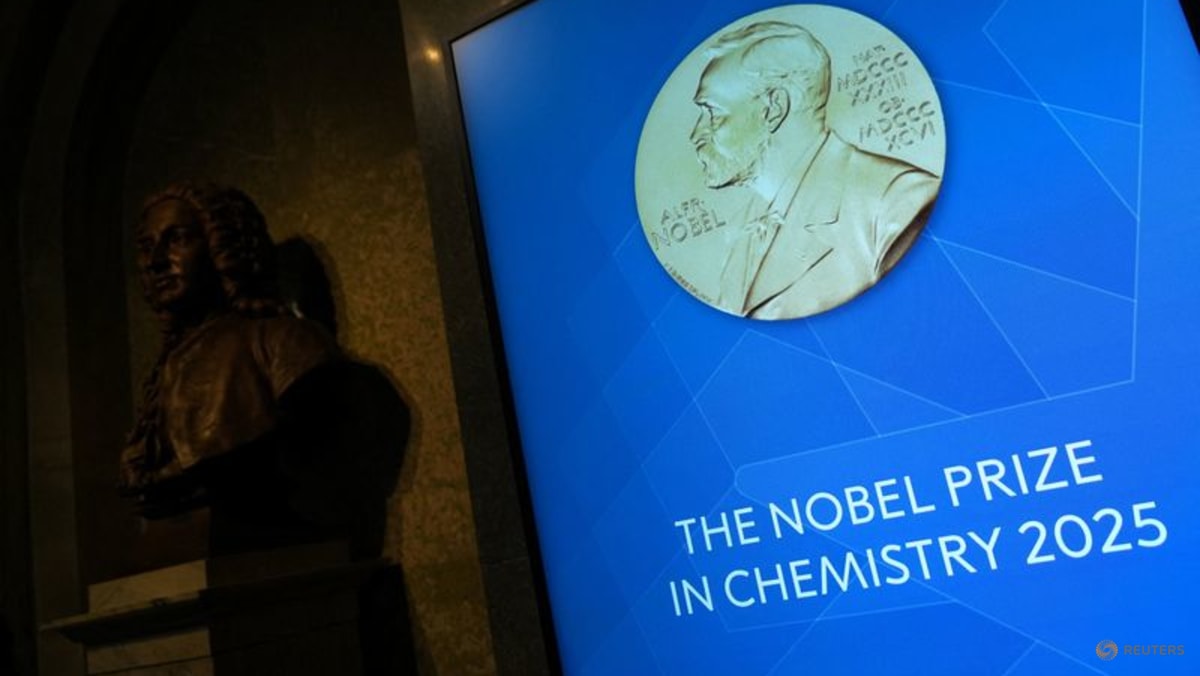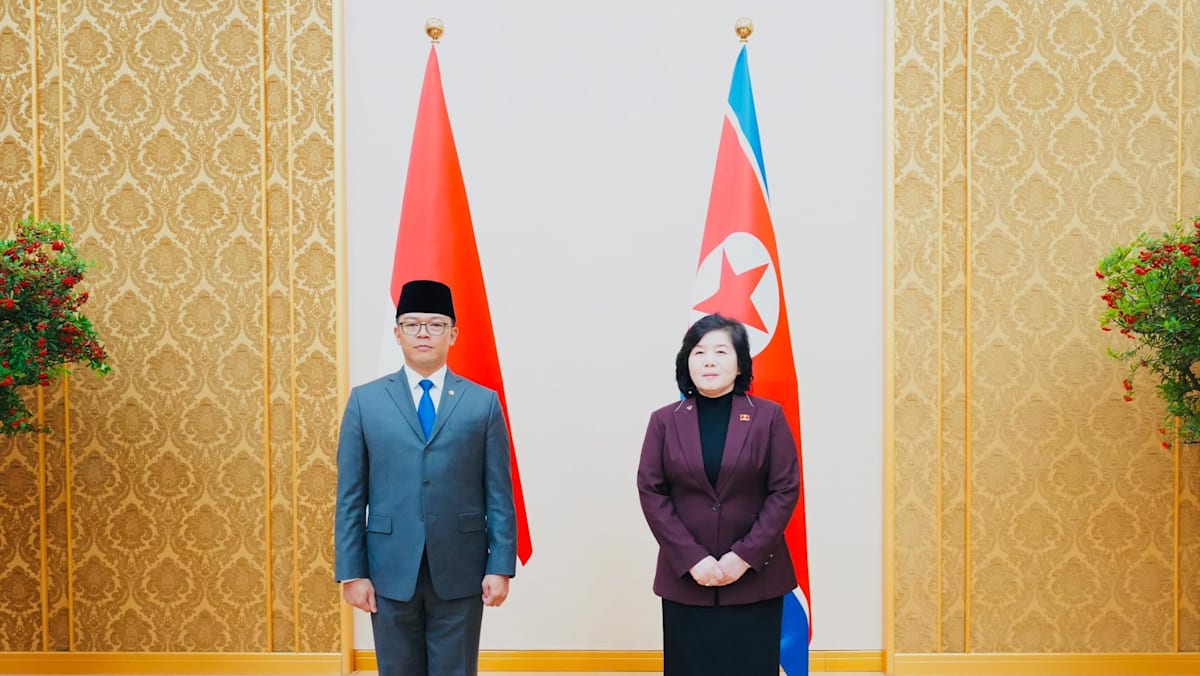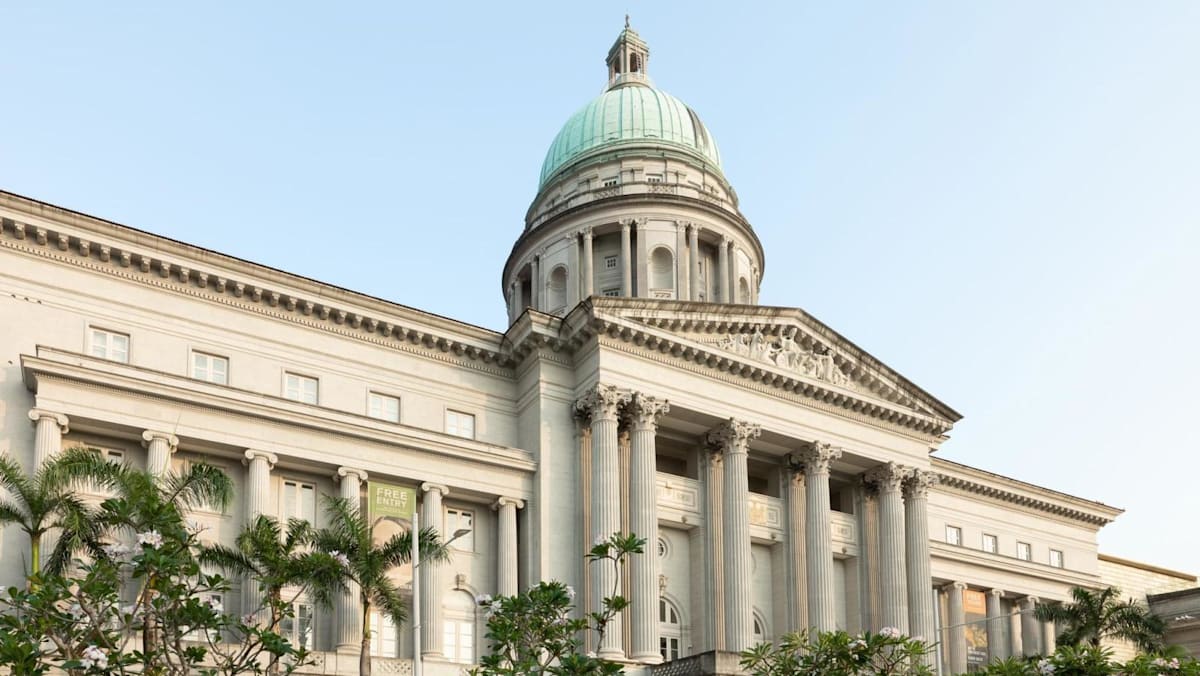China is set to adjust about 20 per cent of university majors this year, adding a new batch of programmes tied to emerging technologies and phasing out others it says no longer meet today's needs.
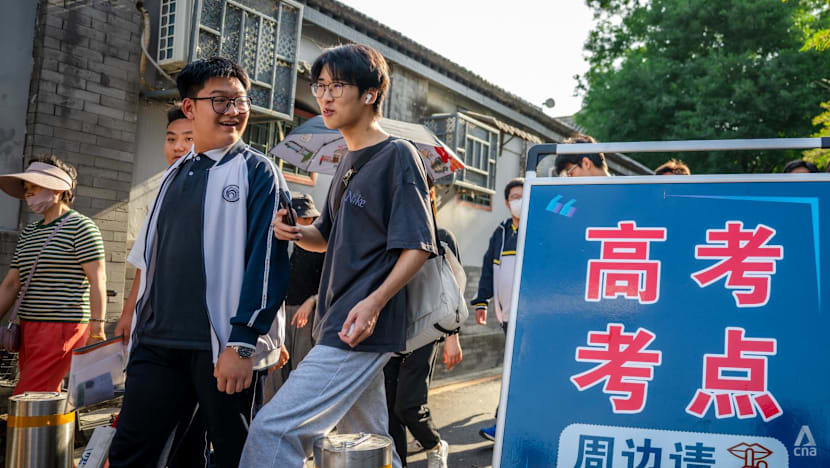
Students exit from examination center after taking Gaokao at Beijing No.2 Middle School, on Jun. 8, 2025. (Photo: CNA/Hu Chushi)
New: You can now listen to articles.

This audio is generated by an AI tool.
BEIJING: Scoring top marks in China’s gruelling national college entrance exam, the gaokao, has long been seen as a ticket to success, often leading to coveted spots at the country’s most prestigious schools in Beijing like Tsinghua University and Peking University.
But this year, some of China’s best-performing students are turning these top universities down.
They are instead opting for institutions that promise stronger career stability or offer degrees in emerging fields like artificial intelligence.
Such unconventional choices, which have sparked debate online, come as the nation’s youth unemployment rate reached a two-year high of 18.9 per cent in August.
NOT CHOOSING WEAK OPTIONS
When several top gaokao performers announced in August that they were declining offers from elite universities, the news quickly went viral.
The hashtag “Where are the top scorers who turned down Tsinghua going” became a trending topic across Chinese social media.
Among them was a Beijing top scorer who reportedly turned down Peking University to study AI at Zhejiang University in Hangzhou.
The city is home to AI start-up DeepSeek, which was founded by a Zhejiang alumnus. The school rolled out special DeepSeek courses earlier this year amid China’s nationwide push to develop its AI sector.
Zhejiang University is still among the leading higher education institutions in China, ranking third this year by ShanghaiRanking, an annual global university rankings report. Tsinghua University is in the top spot while Peking University is second.
Another high-achieving student from Chongqing picked a semiconductor major at Westlake University, a newer private research institute also based in Hangzhou.
These students are not rejecting top universities for weaker options, noted Shaun Rein, founder and managing director of China Market Research Group consultancy.
“It's not like they're rejecting the number one, number two university to go to number 100 and have an easy way out. It would be like turning down Yale or Princeton to go to MIT (Massachusetts Institute of Technology),” he added.
MOUNTING PRESSURE IN JOB MARKET
The changing preferences among top scorers come as young Chinese face growing pressure in the job market.
“We are still looking at the challenges with regards to the type of people who do want a job, but perhaps may not have the skillsets that the market is demanding,” said Heron Lim, a lecturer at Essec Business School.
“(Or it could be) the market is simply not creating enough jobs to accommodate the aspirations of people who would like to get this type of jobs,” he added.
Xiong Bingqi, director at China-based educational think tank 21st Century Education Research Institute, gave a hypothetical scenario of a student gaining admission to Shanghai Jiao Tong University – ranked fourth in China – but choosing to attend Shanghai Customs College – ranked 262th – as it could give them a better chance of securing a government job.
“These choices reflect the current employment climate: many students and parents are prioritising stable career prospects over famous university names,” he added.
Rein also said students are feeling a lot of anxiety and fear over underemployment, in which a job does not fully utilise a worker’s skills. This is in turn spurring them to be more pragmatic about what and where to study.
He told CNA’s East Asia Tonight programme that the asking pay has also fallen in recent years, due to the weak economy and increase in the number of Chinese graduates entering the job market.
Tsinghua graduates used to ask for a monthly salary of 15,000 to 20,000 yuan (US$2,100 to US$2,800) when applying for a job at his company before the COVID-19 pandemic.
“Now, they're asking for 8,000 to 10,000 yuan a month,” he said.
“It's still easy – if you go to a top university – to get a job, but you might be making 30 per cent or maybe even half of what your counterparts would have made (if) they graduated in 2019.”
MORE INTEREST IN MILITARY SCHOOLS
Military academies are seeing growing interest as well.
According to China’s Defense Ministry, 135,000 high school graduates applied this year – a record high.
Incentives at institutions like the National University of Defense Technology in Changsha include free tuition, monthly stipends and a guaranteed military career.
One parent told CNA that a student might very well consider going to the National University of Defense Technology over Tsinghua or Peking, since the admission scores “are about the same” for certain courses and “the employment prospects are better”.
“When it comes to our children’s future employment, and also with the unemployment rate our generation faces after the pandemic, it’s not necessarily essential to only consider a very high-ranking school,” she added.
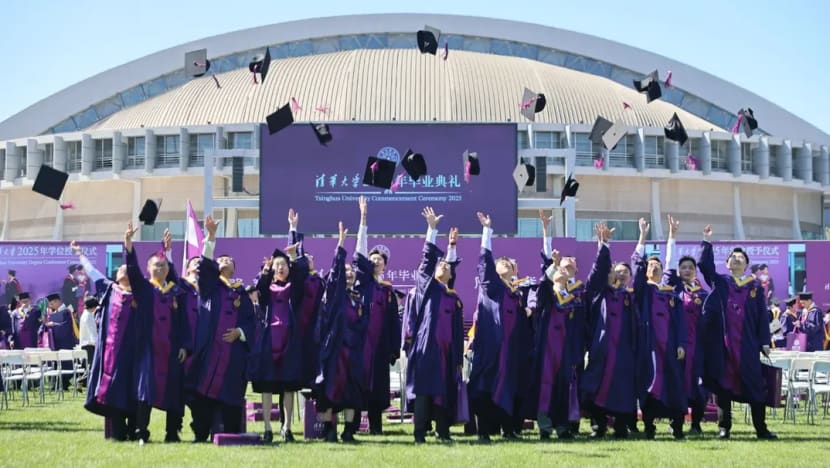 Tsinghua University’s Class of 2025 toss their caps in celebration at their Beijing commencement. (Photo: IG/tsinghua_uni)
Tsinghua University’s Class of 2025 toss their caps in celebration at their Beijing commencement. (Photo: IG/tsinghua_uni)
Rein also pointed to innovation by schools like Zhejiang University, which he said is investing “tons of money” into attracting students and focusing on areas like semiconductors and AI.
“The Chinese government is moving the economy away from … heavy investment into things like housing and real estate, which once accounted for 40 per cent of the economy. Now it only accounts for about 25 per cent,” Rein noted.
The ongoing tariff war with the United States has also spurred China to move away from low-end manufacturing, he added.
Furthermore, enrolment in some traditional majors like history and philosophy has dropped at elite universities, according to local reports.
“A lot of the top students (are) deciding, ‘Maybe let's not go to Peking University, which is all about history, all about law, all about literature, and let's move to and embrace these new majors like AI, like semiconductors’,” said Rein.
China is set to adjust about 20 per cent of university majors by this year, adding a new batch of programmes tied to emerging technologies and phasing out others it says no longer meet today's needs.
Some experts warn, however, that schools should not become purely job-focused.
"A comprehensive university is not a vocational training centre. Its focus should be on cultivating students’ fundamental abilities and overall qualities, and it should not be employment-driven,” said Xiong from the 21st Century Education Research Institute.
“Vocational institutions, on the other hand, are precisely the ones that should be employment-oriented.”

